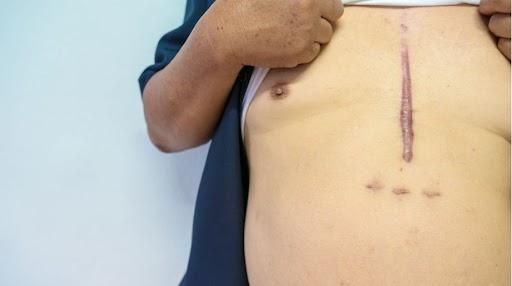Managing and Healing Open Heart Surgery Scars: A Comprehensive Guide
Feb 22, 2024

Open heart surgery is a life-saving procedure that often leaves patients with visible scars. While these scars serve as a reminder of the journey to recovery, they can also cause discomfort and affect self-esteem. In this blog post, we will explore various methods to manage and heal open heart surgery scars, including scar tissue formation and itching.
Understanding Open Heart Surgery Scars
Open heart surgery scars result from the incisions made during the surgical procedure. These scars can vary in size and appearance depending on the type of surgery performed and individual factors such as skin type and healing process. Additionally, scar tissue formation is common after open heart surgery, which can contribute to the appearance and texture of the scar.
Managing Scar Tissue Formation
Scar tissue formation is a natural part of the healing process but can sometimes lead to complications such as tightness or discomfort. To manage scar tissue formation after open heart surgery, patients can consider various techniques:
Massage Therapy: Gentle massage techniques can help break down scar tissue and improve blood circulation to the area.
Silicone Gel Sheets: Silicone gel sheets have been shown to effectively reduce scar tissue formation and improve the appearance of scars over time.
Compression Garments: Wearing compression garments over the scar site can help minimize swelling and promote proper healing of the tissue.
Physical Therapy: Engaging in targeted exercises prescribed by a physical therapist can help improve flexibility and range of motion around the scar area.
Addressing Scar Itching: Scar itching is a common complaint among patients recovering from open heart surgery. While itching is a sign of healing, excessive scratching can lead to further irritation and potential complications.
Here are some tips to address scar itching:
Keep the Area Clean - Regularly clean the scar area with mild soap and water to prevent infection and reduce itching.
Moisturize - Applying a hypoallergenic moisturizer to the scar site can help alleviate itching and keep the skin hydrated.
Avoid Scratching - Resist the urge to scratch the scar site, as this can lead to further irritation and prolong the healing process.
Topical Treatments - Over-the-counter anti-itch creams or ointments containing ingredients like hydrocortisone can provide temporary relief from itching.
Incorporating Paras Health for Scar Management
At Paras Health, we understand the importance of comprehensive scar management for patients undergoing open heart surgery. Our team of experienced healthcare professionals is dedicated to providing personalized care and support throughout the recovery process. Whether it's recommending effective scar management techniques or addressing any concerns related to scar healing, we are here to assist our patients every step of the way.
Conclusion
Open heart surgery scars can pose physical and emotional challenges for patients, but with proper management and support, they can heal effectively over time. By understanding the factors contributing to scar formation and implementing appropriate scar management techniques, patients can minimize discomfort and achieve optimal healing outcomes. At Paras Health, we remain committed to delivering exceptional care and empowering our patients on their journey to recovery.








